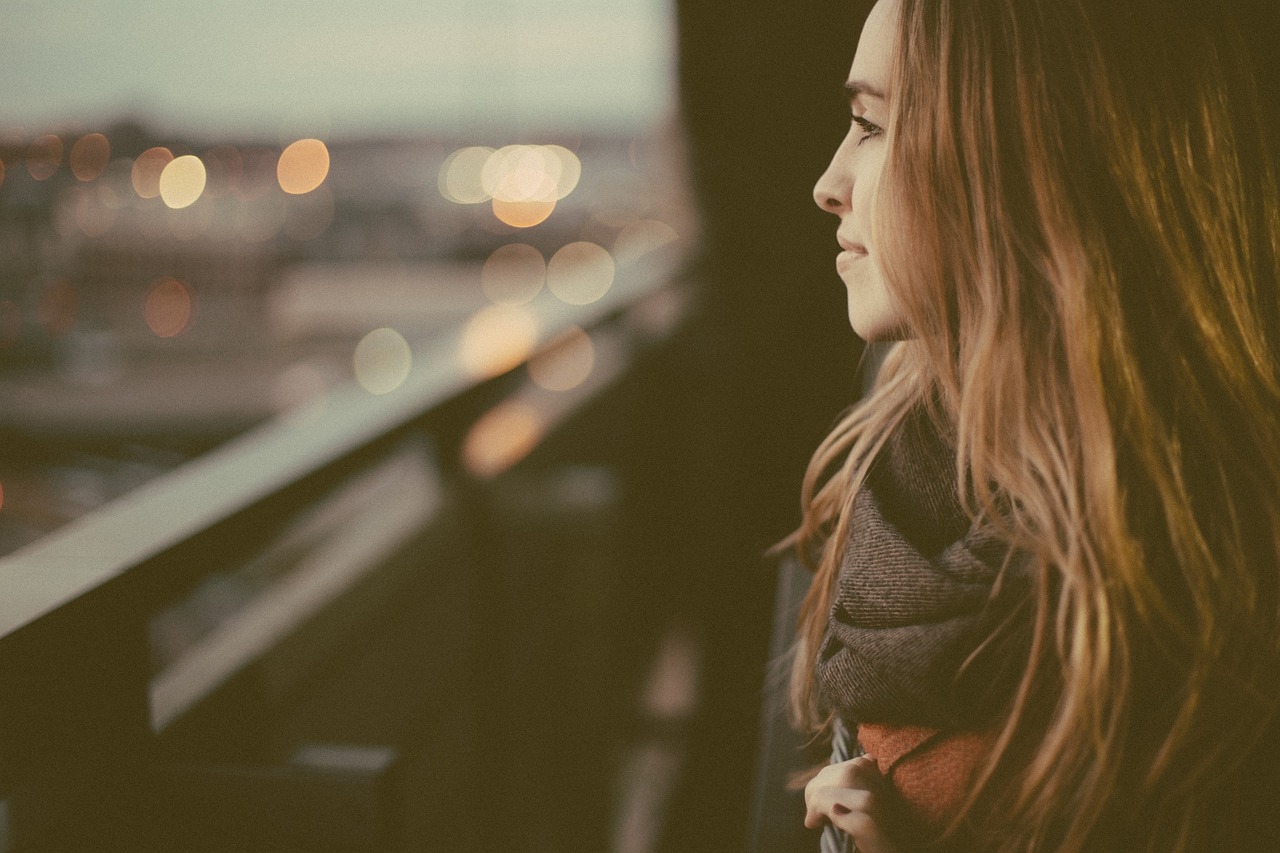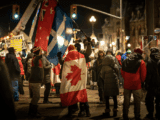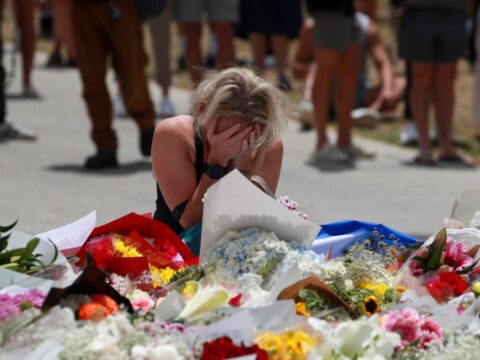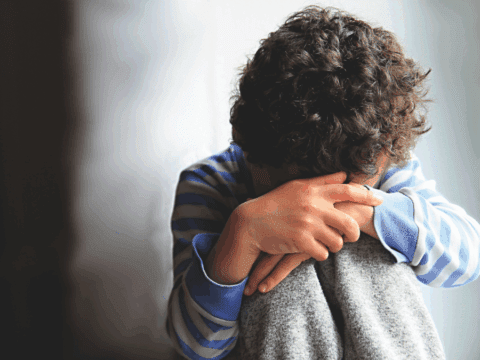At the height of the #MeToo movement, countless friends took to social media to share their experiences. After reading their stories, I noticed one thing: they were all white. I was puzzled by the silence from the women of colour in my life, who are usually vocal about social issues.
I saw this on a larger scale, too. Tarana Burke, an African-American civil rights activist, was the one who coined the phrase more than a decade ago as a show of solidarity among survivors of assault. But it wasn’t until last October, when actor Alyssa Milano asked her Twitter followers to respond #MeToo if they’d experienced harassment, that the campaign went viral, sparking a global conversation. However, not everyone is talking.
You may unsubscribe from any of our newsletters at any time.
With affluent white women dominating the headlines, the movement has been criticized for excluding women of colour. In addition, speaking openly about their abuse is complicated for many women of colour. For example, they may have to navigate conversations about assault in cultures that don’t openly discuss sex, while simultaneously considering how outing themselves may reflect on their families and tight-knit communities. So they err on the side of caution.
To help open up the conversation, three women agreed to share their #MeToo stories along with the quiet, intentional ways, they are creating the safe spaces they never had.
Shaila
Shaila Kibria wasn’t allowed to speak freely about her rape for years. She was 15, living in Mississauga, when it happened. She told her parents, who advised her to distance herself from the perpetrator, a relative, so he wouldn’t do it again — but he did. Then her grandmother called a family meeting with the man in an effort to stop it from reoccurring. That didn’t work, either, because he molested Kibria yet again.
Kibria recalls conversations where she would describe the molestation to her father, who would censor her words. “Not only were these words not allowed, you didn’t even say the word s-e-x. You didn’t even spell it out. You didn’t talk about body parts, there’s shame.”
In the aftermath, Kibria was expected to carry the burden of silence to preserve her family’s reputation. “I wasn’t allowed to talk about it. They said, ‘Because of one man, do you want the whole family to look bad?’ And I felt responsible.” So she kept quiet — even after other relatives told her that he had assaulted them, too.
“Not only were these words not allowed, you didn’t even say the word s-e-x. You didn’t even spell it out. You didn’t talk about body parts, there’s shame.”
For almost three decades, Kibria’s family has been divided over this. While she has the support of some relatives, she says about 50 others have cut her out of their lives. Some maintain positive relationships with both Kibria and her rapist. When it comes to family functions, which are a frequent and important part of her Bangladeshi culture, Kibria’s relatives decide between inviting her or her abuser.
Last fall, Kibria says she was uninvited from a family wedding so her rapist could attend. In her frustration, she took to Facebook to publicly name her abuser for the first time and received an outpouring of support from the wider community. She has since removed the post and reported him to the police, although she’s uncertain about pressing charges.
She is determined, though, to create a safe space for future generations. Because she wasn’t allowed to speak freely about her assault, she has raised her children to know that it’s healthy to discuss one’s body and sexuality. “We don’t need courts to shame people now. We can put justice in our own hands,” she says. “I feel so great; it’s about time.”
Maria
It took Maria (not her real name) two years before she realized she was raped. She was on a date when the man she was with initiated sex. “I said ‘no’ at the very minimum at least five times. It was repeated. It was very clear,” she remembers.
Despite that, the man forced himself on her, leaving Maria in shock. “I thought: ‘He disrespected my wishes’ rather than ‘He raped me.’”
Growing up in the United States in a conservative, Catholic, Cuban family, Maria says discussions about sex were taboo but expectations were clear: women should dress modestly to prevent enticing men and sex was reserved for marriage. While she otherwise has a good relationship with her parents, Maria has not told them about her assault. She’s worried their patriarchal views would lead to victim shaming.
“I thought: ‘He disrespected my wishes’ rather than ‘He raped me.’”
Maria is hesitant to out herself as a survivor in public, too, although she has used coded language on social media. Wanting to prove that rape happens across demographics, she shared on Facebook that the survivors she knows are highly educated, working professionals in their 30s. “Of course, I didn’t say that included me.
Still, she has found other ways to affect change. She didn’t know what consent looked like, so she’s taken the initiative to have these conversations with friends. Professionally, she’s creating a council on sexual harassment and workplace equity.
Eventually, Maria wants to make her story known so that she can challenge narratives around assault — and she plans to start at home. “Secrets are debilitating and that’s why I know I need to tell my parents,” she says. “I hope I’m planting little seeds.”
Safia
With mixed feelings, Safia, who asked her last name to be withheld, has been following the stories of the Hollywood actors leading the #MeToo movement. “There was a part of me that’s really grateful that they’re using their voice for it, but it reminded me of how many people don’t feel that power. I am a Canadian woman with East African roots and I am Ismaili [Muslim] and I knew that sharing [my abuse] in the same way would not have that same response,” the former Vancouverite says.
When she was sexually abused over the course of a year during high school, she felt she had no one at home or in the community who would protect her. To cope, Safia maintained straight A’s and pretended to be okay. She received such unhealthy messages about sexuality that she thought the abuse was just another part of growing up. “I had to figure out how to be around that person all the time… How much strength do you expect a person to have?” she asks.
For her, this message was more traumatic than the abuse itself.
Years later, Safia began to open up about her abuse. “Most of the response was: ‘I love you, I’m sorry that happened to you and now it’s time to get over it,’” she recalls. For her, this message was more traumatic than the abuse itself.
A few older women in her community have told Safia they can relate to her experience, but they never say more than that. Safia, who leads self-development workshops for adolescent girls and adults, says they suppress their stories because they don’t feel safe opening up about them.
“I wish I grew up in an environment where people said this is how you treat your body,” she says. “It would have changed my whole life.”











